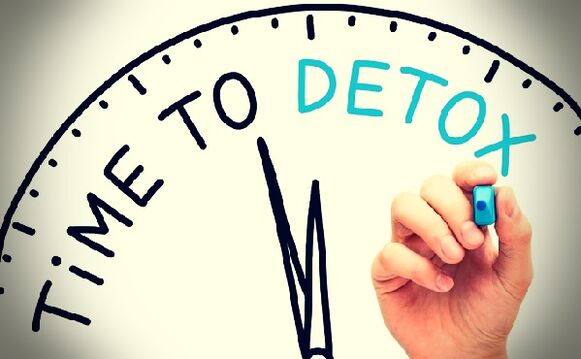Supported by myths and shorthand, alcoholism draws large numbers of people to its nets each year. The problem of drunkenness is more relevant than ever: according to statistics, only 20 percent of people drink alcohol no more than 2-3 times a month. Others drank even more often, not even realizing that they were dependent on vipers or were halfway addicted. When health begins to decline or loved ones ask to stabilize their lives, drinkers ask themselves: how to quit drinking forever, is it possible?
Realize the problem
Drinkers rarely admit that they are best friends with alcohol. Like, I only drink beer on weekends, but my neighbors drink vodka every day. When is it worth considering whether your behavior is crossing the line between "infrequent drinking" and alcoholism?
- If you drink alcohol more than once a month.
- If you drink to the point of drunkenness, and not a glass.
- If alcohol is an indispensable rest and relaxation tool for you.
The presence of even both of the factors mentioned above indicates a risk of alcoholism or that it has already begun.
After passing a small test, a person needs to admit that he still has an alcohol-related problem. At this stage, the drinker finds many excuses for his behavior. But each of them can be refuted by reasonable reflection.
- I don't drink, I just relax. Alcohol brings a sense of relaxation in the imagination. Shortly after drinking alcohol, the body has to work hard to save itself from ethyl alcohol poisoning. When taking too high a dose, a hangover will appear with unpleasant and painful symptoms. What kind of vacation are we talking about?
- I drink because I have a problem. Every person in life has two kinds of problems: they need to be solved or they are not even worth worrying about. Just addicted to one drink, even more problems appear than before: loss of job, family, health.
- I drink because I have a hard life. To some, being on this earth may seem like a pleasant walk. Let's say you have a hard life, African children starving, terminally ill, orphans in orphanages.

As you can see, any argument to justify intoxication can be refuted, but the drinker needs to do it himself, ultimately agreeing that he has been deceiving himself and others throughout. last time.
Steps towards sanity
A small percentage of alcoholics can make the decision to say goodbye to alcohol once and for all. A promise to yourself or loved ones that, after a week, will overshadow a strong desire to drink, which alcoholics can't resist. Relapse occurs because the alcoholic does not understand that sobriety is a goal that should be worked toward gradually, in small but sure steps.
- It is impossible to give up alcohol immediately after a drinking session. This puts extra strain on the heart and nervous system. Before you stop drinking alcohol, you need to cleanse your body of its breakdown products. This can be done in both a medical hospital under a dropper and at home. For the second option, drugs sold on the Internet are suitable. Not only do they remove toxins, but they also help reduce cravings.
- When your mind is clear and your hands are not shaking, you need to understand that you can only quit drinking by giving up alcoholic beverages in any dosage forever. This requires motivation: a desire not to destroy health, not fear of losing a job or family.
- How many people who want to quit drinking have fallen under the weight of withdrawal. Therefore, you need to know the enemy firsthand, so once you have embarked on the path of sobriety, you should remember that the body will require a dose of ethanol, reacting:
- unwarranted worry;
- unhappy;
- feeling empty in life;
- weak and unwilling to do anything.

Do not abuse folk remedies to purify the body: male medicines also have contraindications and can cause exacerbations of the disease.
Alcohol withdrawal can last from six months to 18 months.

Activities that promote alertness
How to stop drinking forever if life seems gray and monotonous? This is where the main task of quitting drinking lies - to completely change your lifestyle, get rid of bad habits and acquire useful habits that contribute to sobriety.
- At first, you'll have to avoid companies where everyone drinks. Don't say to friends or ex-drinkers, "I want to stop drinking. " They might try to stop you from doing such a "crazy" job.
- You need to exercise. Do you sit and drink beer while cheering for the football team? Now it's better to drive the ball yourself. And if you don't have the health to exercise, a little jogging won't hurt.
- Find a hobby. After quitting drinking, life seems boring so you need to find a way to overcome it. Now that you don't have to buy alcohol, this money can be spent on a hobby, whether it's collecting, woodcarving, or fishing. A woman who has been drinking may find relaxation in yoga or massage sessions. The main thing is to get acquainted with like-minded people who advocate a healthy lifestyle.
- You need to get rid of bad habits. An organism that has been subjected to the effects of alcohol for many years will have other bad habits: smoking, eating fast food, spending nights at the computer. Rejecting at least half of them will give you energy and strength to move on.
After years of making friends with alcohol, sobriety does not come immediately, on the way to achieving it you will have to accumulate a lot of patience.

































